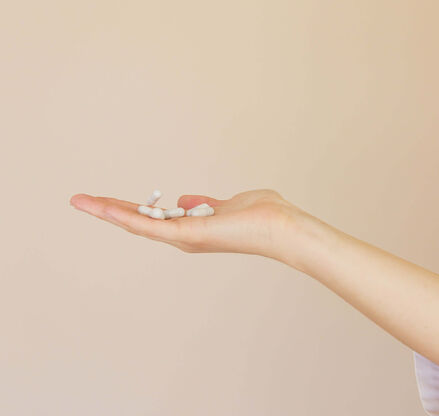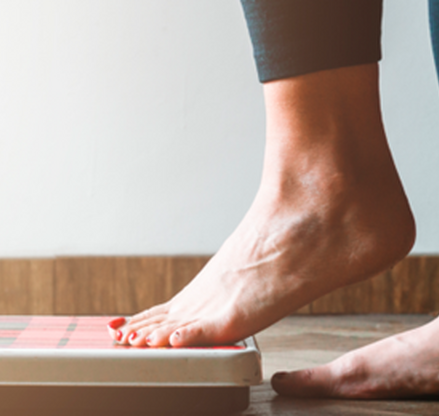
Confused by current messaging around vitamin D ?
Vitamin D has several important functions in various body systems. It helps regulate the amount of calcium and phosphate in the body, which are needed to keep bones and teeth healthy and maintain strong muscles. It is also “essential for immune function
Humans make most of their vitamin D under the skin in reaction to sunlight. In an ideal world, this should supply all the vitamin D people need, but in the UK the winter sun is not strong enough for this to be the case.
The vitamin is also found in some foods such as oily fish, eggs, fortified yoghurts, fat spreads, fortified breakfast cereals and bread, and some powdered milks. However, it is hard for most people to get sufficient vitamin D from food alone, hence Government advice to use supplementation during the colder, darker months.
Recent National Diet and Nutrition Survey (NDNS) data shows that 17 per cent of adults aged 19-64 years have a vitamin D deficiency, which puts them at risk of developing a number of illnesses and conditions. At the extreme end of the scale, this includes rickets in children and adolescents and in adults a painful condition called osteomalacia where bones become soft and deformed. This condition puts adults over the age of 50 at an increased risk of falls and fractures. A recent systematic review of epidemiological studies found increased risk of upper and lower respiratory tract infections with low serum vitamin D levels.
Prevent or treat Covid ?
During Covid the Government updated its guidelines which recommended that everyone over the age of five in the UK should consider taking a daily supplement containing 10µg (micrograms) of vitamin D during spring and summer as well as autumn and winter to protect musculoskeletal health
In June 2020, the National Institute for Health and Care Excellence (NICE) conducted a rapid evidence summary in response to claims that vitamin D may have a role in the body’s immune response to respiratory viruses and therefore may have a role in preventing or treating Covid-19.
The evidence summary concluded that: “There is no evidence to support taking vitamin D supplements to specifically prevent or treat Covid-19. However, all people should continue to follow UK Government advice on daily vitamin D supplementation to maintain bone and muscle health during the Covid-19 pandemic.”
The British Association of Dietitians has also made its position clear, saying: “Simply put, you cannot ‘boost’ your immune system through diet, and no specific food or supplement will prevent you catching Covid-19/Coronavirus. There are many nutrients that are involved with the normal functioning of the immune system, so we would encourage maintaining a healthy balanced diet in order to support immune function (include copper, folate, iron, selenium, zinc and vitamins A, B6, B12, C and D).”
However, some scientists believe the potential role of low vitamin D levels as a risk factor for Covid-19 needs further investigation, and studies continue as new evidence emerges about the disease.
Martin Hewison, professor of molecular endocrinology at University of Birmingham, is part of a research group investigating the link between vitamin D and the immune system. Speaking at a webinar organised by pharmaceutical company Thornton & Ross in July, which interrogated whether vitamin D has a role against Covid-19, he said: “Vitamin D is a potent anti-inflammatory agent that can protect against cytokine storms that follows viral infections such as Covid-19. We don’t know the optimum level needed, when is the best time to use supplementation – before or after infection – and does it affect the actions of other drugs such as dexamethasone. What we do know is that there is a strong case for including vitamin D in the future management of pandemics such as Covid-19.”
Our pharmacist’s advice
As the vitamin is best obtained from sunlight. Getting 15 minutes sun exposure on the arms and face on sunny days through the summer is thought to be enough for fair-skinned people to produce vitamin D, with double that amount necessary for those with darker skin
If this isn’t possible, or in addition to this, people may want to turn to food sources. The BNF suggests that one way people looking to increase their vitamin D intake from food could be to start the day with a breakfast cereal fortified with vitamin D, have some poached eggs or an omelette at lunchtime, and then have a dinner including canned or fresh oily fish like salmon.
Food fortification has been identified by the World Health Organization (WHO) and the Food and Agricultural Organization of the United Nations (FAO) as a way of addressing low intake of vitamins and minerals – including vitamin D. Currently, in the UK, infant formula milks and spreadable fats are fortified with vitamin D, along with some other foods including breakfast cereals. Recent studies at the University of Birmingham claim that adding vitamin D to wheat flour would prevent 10 million new cases of vitamin D deficiency in England and Wales over the next 90 years.
Last year, a forum of nutrition scientists discussed the potential of food fortification as a strategy for increasing vitamin D intake across the UK. They found that the lack of consistency between the reference intake (RI) for vitamin D that must currently be used for labelling purposes in Europe (5μg/day) and the UK Government’s reference nutrient intake (RNI) for the vitamin (10μg/day) is a potential barrier to voluntary fortification by food manufacturers, and risks compromising clear communication.
It is hard for most people to get sufficient vitamin D from food alone so Public Health England recommend everyone to take vitamin D 10µg daily”.

Available options Most supplements contain vitamin D3 and vitamin D2, but as D3 is derived from lamb’s wool, it may not be an option for you if you follow a vegan or vegetarian diet. The ROS advises that for people taking vitamin D because they have a bone condition such as osteoporosis, “it might be preferable to take a prescribed supplement from your doctor as these products will have been carefully tested to make absolutely sure that they work well”. Our advice is talk to a GP if you have a history of chronic health conditions and are considering taking any supplements.
It is recommended that the following groups of people should routinely take 10µg throughout the year:
• Those who have no or very little sunshine exposure, such as people who are frail, housebound or in a care home
• People who usually wear clothes that cover up most of their skin when outdoors
• Those with dark skin, such as people of African, African-Caribbean or south Asian origin, who might not get enough vitamin D from sunlight when living in the UK
• Pregnant women
• Children aged from one to four years.
• Infants from birth to one year should be given a daily supplement containing 8.5-10µg of vitamin D, unless they are receiving at least 500ml of infant formula milk per day.This guidance includes all breastfed even if the mother is taking vitamin D supplements.
Families who qualify for the NHS Healthy Start Scheme are entitled to free vitamin drops; they will receive a Healthy Start Card which can be used to purchase vitamin drops from their local stockist. For families who are not eligible for the scheme, vitamin preparations suitable for breastfed babies can be purchased from your pharmacy.
Other population group affected by Vitamin D deficiency include people with kidney disease and those taking anticonvulsant medications.
If you are worried about or would like to know your vitamin D blood level we now have an in pharmacy test which gives laboratory accurate results in minutes. Our pharmacists can use the result to recommend the most appropriate dose to treat any deficiency found. Please phone our pharmacists on 01509 506564 for more information or to book an appointment. .





